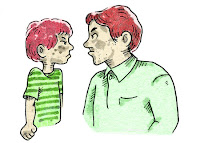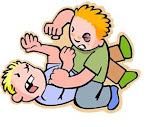Discipline for Stubborn Teenagers

Discipline for stubborn teenagers requires a firmer hand, often with a greater show of love than her obedient, well-behaved sibling. Don’t despair if you have a stubborn teenager with intense opinions and a demanding nature. Although your teenager’s determined attempts to control her own life can frustrate and exhaust you as a parent, there’s hope. You can come to understand your teenager and learn to shape her will without breaking her spirit. Here’s how you can help your stubborn teenager: 1. Always follow through. Understand that your stubborn teenager can take advantage of you if you do not follow through because you are too busy or too tired to stand firm on what you have previously stated. If, for example, you have said that you will not allow your teenager to watch television if she does not cooperate, then you must take this privilege away from her for some time. 2. Avoid power struggles by using routines and rules. That way, you aren't bossing them around,...





